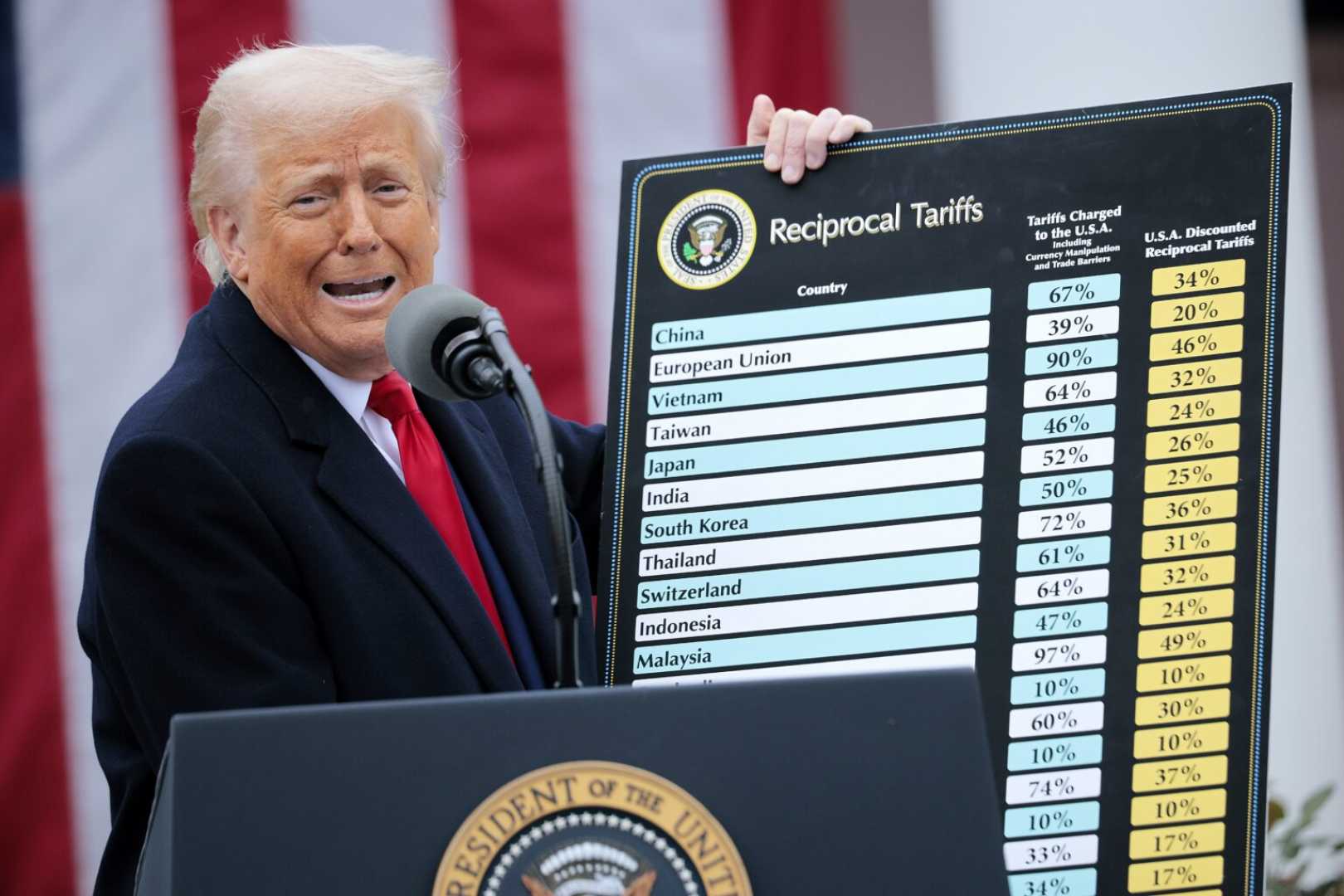Politics
Trump’s Tariffs Spark Controversy and Congressional Response

WASHINGTON, D.C. — President Donald Trump has initiated a sweeping new set of tariffs, effective Wednesday, April 2, 2025, raising questions about his authority and igniting debate in Congress.
The tariffs, which some estimates suggest could exceed 100%, have already prompted retaliatory measures from China and shaken financial markets, raising concerns about a potential economic downturn. “This is a unilateral decision that could have unique repercussions on both domestic and global economies,” said financial analyst Jane Doe.
Trump is defending his action by claiming broad legal authority under the International Emergency Economic Powers Act of 1977. However, legal experts argue that this may not align with constitutional provisions that grant Congress exclusive rights to impose tariffs. The authority over tariffs has shifted back and forth between Congress and the executive branch over the decades, primarily since the Great Depression.
In a notable response, seven Republican senators joined Democrats to sponsor a bipartisan bill aimed at restricting the president’s ability to impose tariffs without congressional approval. The proposed Trade Review Act would require the White House to justify new tariffs and allow Congress to reject them within 60 days.
“For too long, Congress has delegated its clear authority to regulate interstate and foreign commerce to the executive branch,” said Senator Charles Grassley, a Republican from Iowa, who co-sponsored the bill with Democrat Senator Maria Cantwell. The bipartisan support indicates growing unease among Republicans regarding Trump’s aggressive trade policies.
A continued push against Trump’s tariff agenda emerged from the House of Representatives, where similar legislative efforts are underway. Representative Don Bacon, a Republican from Nebraska associated with the push, stated, “It’s time that Congress restores its authorities here.”
Despite the bipartisan backlash, political analysts caution that any congressional attempt to limit Trump’s tariff powers is complicated by the potential for a presidential veto. Senate Majority Leader John Thune expressed skepticism, stating, “I don’t think that has a future,” suggesting that obtaining the necessary votes to override a veto would be extremely challenging.
The constitutional debate surrounding these tariffs has also sparked legal challenges. A Florida-based business, Simplified, has filed a lawsuit against the administration, claiming that Trump’s use of the IEEPA does not grant him the authority to impose these tariffs. The New Civil Liberties Alliance, representing the business, argues that no president has previously executed such wide-ranging tariffs under this act.
As the stock market reacts to the potential for increased tariffs and broader economic instability, bipartisan voices are increasingly calling for Congress to reassert its constitutional powers over trade. Representative Josh Gottheimer from New Jersey stated, “Higher costs of everyday goods are a reality for many families right now, and Congress should act to alleviate this pressure.”
The long-term implications of Trump’s tariff policy remain uncertain, as policymakers on both sides of the aisle grapple with balancing national interests with economic stability. The urgency of legislative action is palpable as lawmakers prepare for midterm elections in 2026.
Senate Republicans like Thom Tillis have voiced concerns that continued opposition to Trump may alienate voters. “Business people think long-term, but the American people think every two years,” Tillis noted. “Success in restoring economic stability requires us to keep our electoral objectives in mind.”
Ultimately, the ongoing development around Trump’s tariff policies reflects not just a struggle over trade practices but also a broader battle for the constitutional powers that govern American governance.












